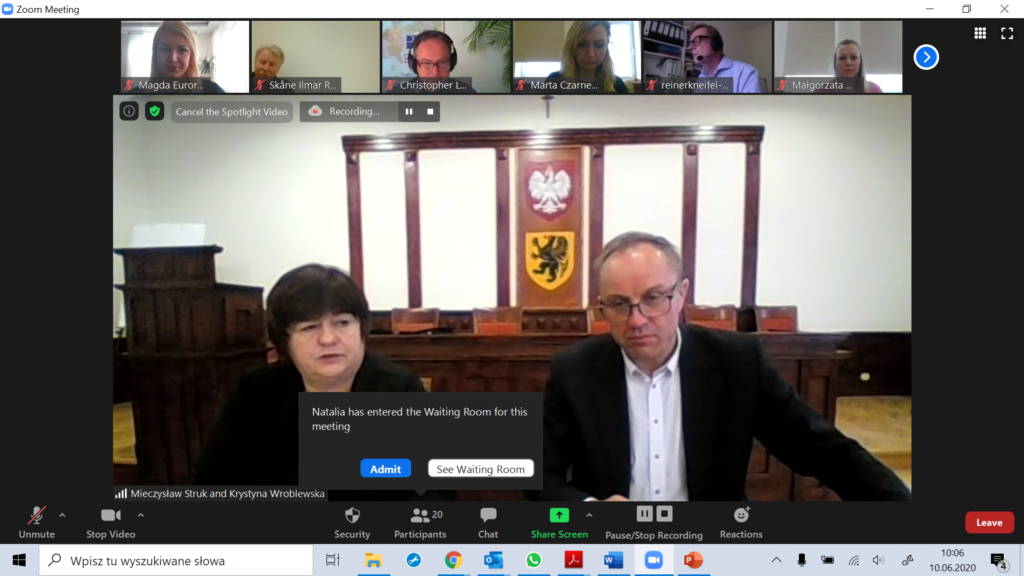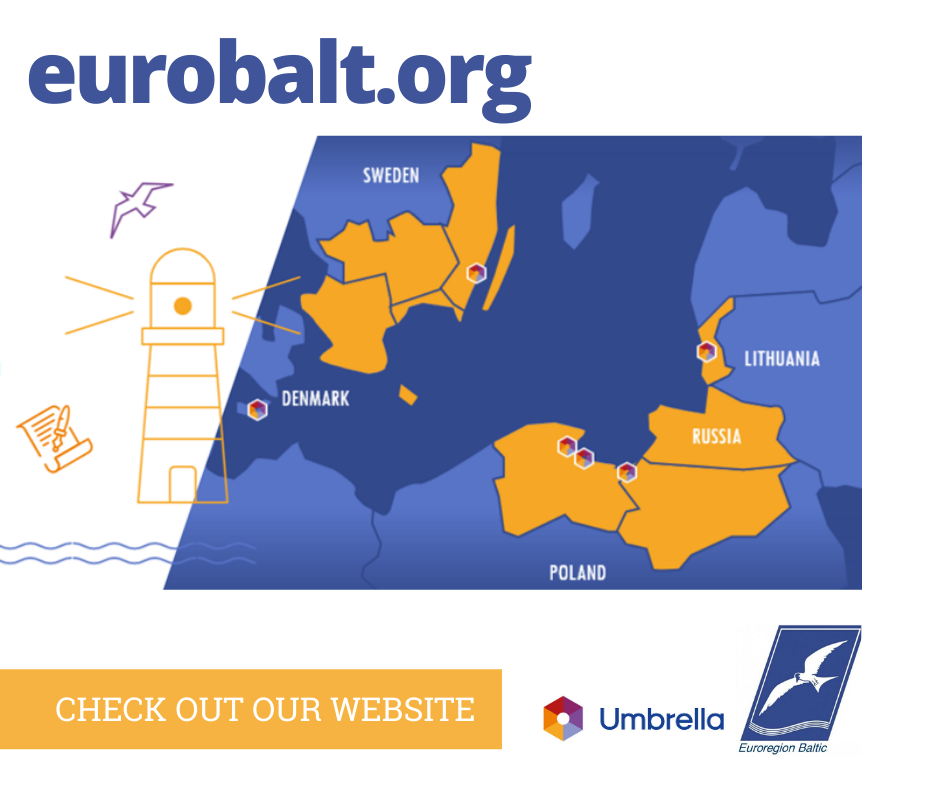On 10th June 2020, Ms Magda Leszczyna-Rzucidło, Head of the ERB IPS, took part in the BSSSC online Board meeting. She presented shortly the latest ERB policy paper on the Future of the South Baltic Programme with the special attention to the capacity building initiatives for the small and local actors. She also introduced the BSSSSC Board members to the series of Umbrella project webinars being organized on ZOOM platform.

BSSSC Board meeting Draft Agenda
1. Opening of the Board meeting
1.1. Opening of the meeting – Mr. Mieczysław Struk, BSSSC Chairman
1.3. Adoption of the agenda
1.4. Adoption of the minutes from the Board Meeting in Brussels, February 18th, 2020
2. BSSSC Annual Conference
3.1. Digital BSSSC AC 2020 – Information from the hosts
3.2. Discussion on the shape of the conference in relation to Covid-19 pandemic
3.3. Discussion on experts to be involved
3. Covid-19 pandemic – status in BSSSC regions
4. Youth involvement and empowerment
4.1. Report from Youth Coordinator – Mr. Christopher Lucht
4.2. Status regarding the Baltic Sea Youth Platform BSYP
4.3. Baltic Youth Camp 2020 – online edition
4.4. Report from the BSSSC Spring Youth Event – Ms. Krystyna Wróblewska
4.5. Other EU youth-oriented initiatives
5. Interreg BSR 2021-2027 programming
Report from Mr. Matti Lipsanen, Häme
6. MFF and Cohesion Policy
Update from Rapporteur – Mr. Reiner Kneifel-Haverkamp, Brandenburg
7. EUSBSR revision of the Action Plan
7.1 Information on state of affairs – Ms. Marta Czarnecka-Gallas, Pomorskie
7.2. EUSBSR Annual Forum in Turku – BSSSC workshop
8. Transport
Information from Rapporteur – Mr. Jon Halvard Eide, Adger
9. Culture
Update from Rapporteur – Mr. Stefan Musiolik, Schleswig-Holstein
10. Report from Brussels Antenna Ms. Anna Drążek, Director of the Pomorskie Regional EU Office
10.1 How the EU reacts to Coronavirus pandemic
11. BSSSC communication activities report
12. Reports from other BSR organizations
12.1. Euroregion Baltic – Ms. Magda Magda Leszczyna-Rzucidło, Head of ERB International Permanent Secretariat
12.2. Union of Baltic Cities – Mr. Paweł Żaboklicki, Secretary General, Union of the Baltic Cities Secretariat
13. Next Board meeting:
14. Upcoming events
14.1. The Online edition of the Baltic Sea youth Camp – June 12-13, 2020
15. Any other business
END OF MEETING
